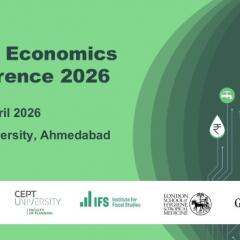
COVID-19 Pandemic and WASH : From Response to Resilience

Event
Fri, July 03, 2020
04:30 pm
Online
WASH Governance Hub
3rd July 2020 4:30-5:45 pm IST / 1:00-2:15 pm CET
The health emergency caused by COVID-19 has affected all countries in varying degrees. Considering that washing hands with soap and clean water is one of the most efficient ways of infection prevention, many countries have implemented a set of measures to mitigate the effects of the crisis in relation to water, sanitation, and hygiene services (WASH). Implementing these measures require political will at the highest level and the committed participation of stakeholders at all levels. The extent of this pandemic touches particularly the most vulnerable sections of the population which might already be suffering from the deprivation of these services. Achieving Sustainable Development Goals (SDGs) 6.1 and 6.2 – universal and equitable access to safe and affordable drinking water for all, and access to adequate and equitable sanitation and hygiene for all – is now more important than ever.
In face of this situation, the WASH Governance Hub (WSGH) wants to trigger discussion about good practices and challenges based on the combined experience of the partners.
SIWI, with the support of UNICEF, has conducted a mapping of the COVID-19 response in the WASH sector for around 70 countries, to understand experiences and good practices by providing a summary of initiatives implemented worldwide.
Panellists have wide ranging experience in India in WASH sector. They will describe their experiences on how WASH has played a significant role in helping local governments and communities in dealing with the pandemic.
The panellists will also discuss how it is important to build resilience by strengthening local governments and communities to address such challenges in future.
|
||||
|
||||
|






